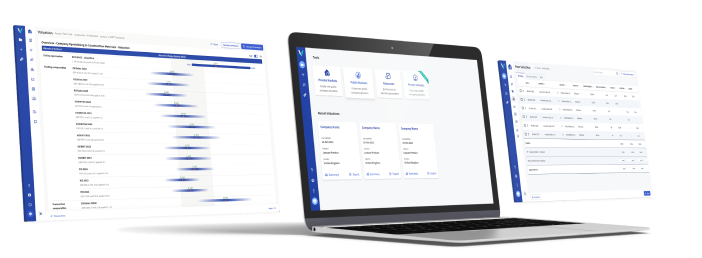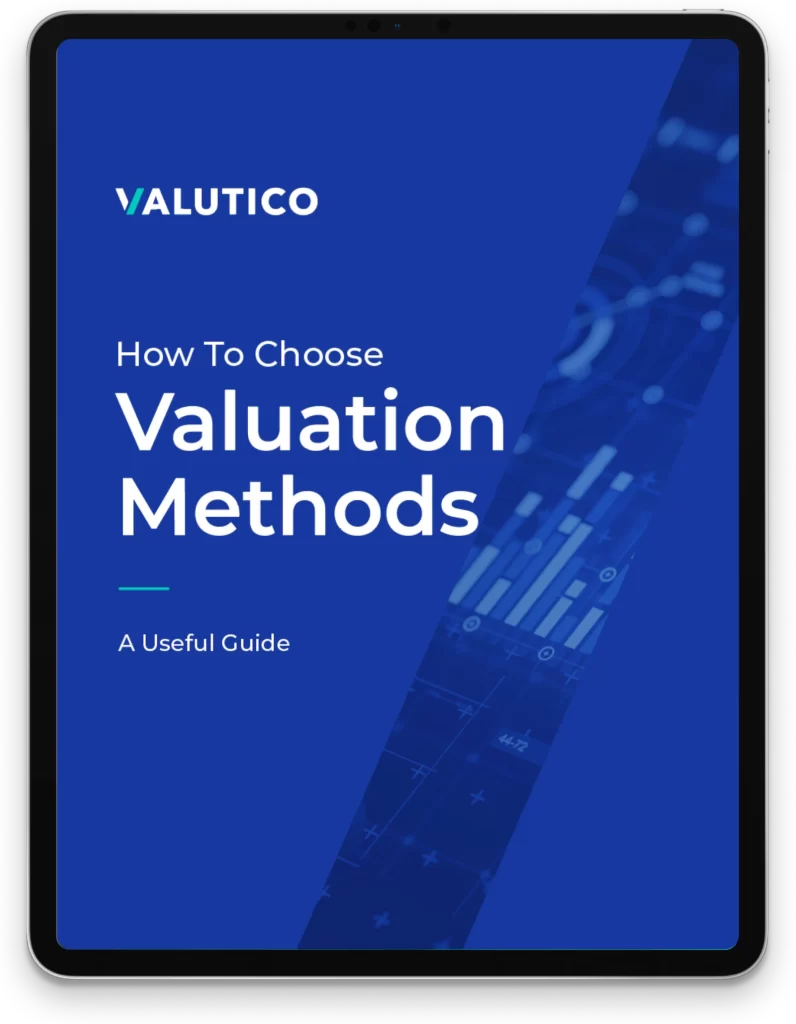
Financial due diligence is one of the most critical aspects of closing deals in the world of M&As. It’s the process through which potential investors, buyers, or partners thoroughly analyze a target company’s financials to determine its financial health and performance.
The findings of financial due diligence are then merged with those of other due diligence areas — like legal, operational, and technical— and used to determine whether or not a proposed deal should proceed.
In this article, we’ll tell you five top ways to make the financial due diligence phase of your next M&A more efficient.
1. Start Early
A common mistake many companies make is waiting until after they’ve sent a letter of intent to start looking into the target’s financials.
A much better approach is to start financial due diligence as soon as you develop an interest in a particular target company or asset. Use publicly available information to gain some early insights into its financial health and performance. This proactive approach provides numerous advantages.
First, it can help you spot major financial discrepancies or inconsistencies early on. You can then determine the best course of action.
For example, if you still believe in the target’s potential, you can start devising strategies to address your concerns. Alternatively, you can abandon the deal and redirect your efforts toward more promising opportunities.
Starting financial due diligence early can also arm you with a foundational understanding of the target’s finances — that you can use to tailor your approach when you make first contact. And once official discussions start, you can use the knowledge you already have to back up your positions or arguments.
2. Engage Industry Experts
Engaging experts from the industry in which your target operates is another great way to improve the efficiency of the due diligence process.
Experts possess an in-depth understanding of the market and industry, allowing them to provide nuanced insights that your in-house analyst team might miss. They can help identify potential red flags or uncover hidden opportunities that might not be immediately apparent.
Industry experts also have an unbiased perspective. Since they’re not emotionally or financially tied to the deal, their evaluations are objective, which makes for a more transparent and genuine assessment. They can help you avoid costly missteps that might result from cognitive biases.
Another big plus of industry experts is their network. They can tap into industry contacts for additional insights, benchmarking, or validation, leading to a more comprehensive and contextual analysis of the target.
3. Look Beyond the Numbers
Financial due diligence aims to offer a comprehensive understanding of a business’s financial health, risks, and opportunities. But while raw financial figures can reveal a lot about a company, they don’t always tell the whole story.
Revenues, expenses, and profits can provide an overview of what has happened, but not necessarily why or whether this is sustainable. Not to mention, some companies can sometimes manipulate their financials to portray a more favorable position, i.e., window dressing.
To get a fully accurate picture of your target’s financial health and future potential, make sure to look beyond the numbers.
For example, study the competitive landscape, market trends, and customer satisfaction. A detailed examination of these elements can provide useful context for some of the target’s financial figures, including helping you determine if these are sustainable.
4. Set a Clearly Defined Scope of Work
Before you begin the financial due diligence process, define the scope of the project. Write down the items or elements you’ll examine, how you’ll examine them, and the overall objectives you hope to achieve.
A well-defined scope of work provides direction and can prevent you from straying into areas that aren’t important to the deal you’re pursuing. It can also help you:
- Allocate resources more efficiently.
- Ensure the right team is assembled.
- Ensure that tasks are appropriately delegated according to team members’ strengths and expertise.
One of the key items in your scope of work should be a financial due diligence checklist. This refers to a comprehensive list of items and information that you’ll use to assess the target’s financial health and performance.
Here are some of the most important items to include in your financial due diligence checklist:
- Income statements
- Balance sheet
- Cash flow statements
- Tax records (including returns and audits)
- Operating margin
- Gross margin
- Profit margin
- Debt to equity ratio
- Interest coverage
- Asset turnover
- Return on equity
- Return on assets
An important note: It’s essential to try to strike a balance when setting the financial due diligence scope of work. While it should be specific enough to provide direction, it shouldn’t be so rigid that it prevents the exploration of unforeseen areas or elements that may emerge during the actual financial due diligence process.
5. Choose the Right Virtual Data Room
A virtual data room (VDR) is a digital vault where all stakeholders in an M&A deal, including the buyer, seller, financial experts, and legal professionals, can store and share sensitive documents and data.
A top-tier VDR streamlines and makes the financial due diligence process more efficient by offering a centralized location for all essential financial documents. This eliminates the need for repeated requests for documents from different parties — everything can be housed within the VDR for fast and convenient access.
A VDR can also help ensure the security of information and data during this phase of an M&A. Financial due diligence usually involves the exchange of sensitive and confidential documents. Any security breaches could lead to significant financial and reputational damages for all parties involved.
Leading providers of VDRs, like CapLinked, usually include robust security features, such as advanced encryption, to protect all sensitive information and data from illegal or unauthorized access.
In fact, if you’re looking for a reputable VDR provider to partner with in your next M&A deal, look no further than CapLinked.
CapLinked’s virtual data rooms come with a user-friendly interface, military-grade security, and a suite of premium features — like customizable permissions, collaboration tools, and document and version management — which are designed to facilitate a smooth, fast, and efficient financial due diligence process.
Want to find out more? Request a quote today.
Wrapping Up
While financial due diligence is undoubtedly the most important component of due diligence, it’s the way you approach it that makes all the difference.
Use the tips we’ve outlined here to improve the efficiency of the process the next time your firm takes part in an M&A. A more efficient financial due diligence process can lead to more accurate valuations, a clearer understanding of potential risks and opportunities, and a smoother integration post-acquisition.
Sources:
Investopedia: Top 6 Websites for Finding a Company’s Financial Stats
EDUCBA: Window Dressing in Accounting


